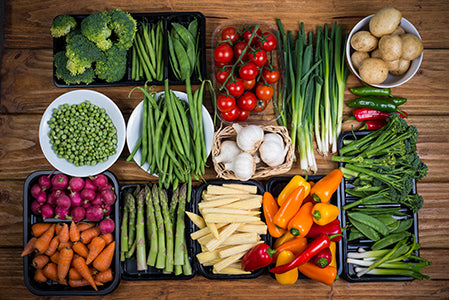It is becoming more widely known that diet plays a key factor in the development of cancer, but many people don’t understand exactly why their food choices impact their risk of cancer. The truth is that cancer development is closely tied with nutrient consumption, so you need to consider the nutrient density of the foods that you are eating.
Nutrient Deficiencies in the Standard American Diet
Researchers are finding more evidence which suggests the link between nutrient consumption and the development of cancer. This problem is growing every year, especially because many people are living an unhealthy lifestyle when it comes to their food choices. Most of the common meals served in the United States contain ingredients that have been stripped of the important vitamins and minerals that are needed for optimal health.
When food is processed, often these vitamins, minerals, and enzymes are removed from the food, creating a final product that is a source of calories without the important nutrients and living vitality that are needed. Choosing to eat these processed foods will feed your body in the sense that you have the calories to continue throughout the day, but the empty calories don’t support the health functions within your body.
In fact, the obesity problems that our population is facing are directly related to nutrient deficiencies. Eating low quality, processed food causes a person to become deficient in the vitamins and minerals that they need. As a result, they will continue experiencing hunger, causing them to eat even more empty calories. It is an ongoing cycle that can only be broken by changing dietary habits to focus on nutrient-dense ingredients such as fruits, vegetables, nuts, seeds, and legumes.
Why Do Nutrient Deficiencies Impact Cancer Risk?
It has been found that inadequate levels of vitamins and minerals can actually lead to DNA damage. Consumption of fresh fruits and vegetables loads the body with essential vitamins and minerals that support all aspects of health and wellness. These foods fight free radical damage, to prevent the DNA changes that lead to cancer. According to the emerging science of epigenetics, these foods also turn on protective genes and turn off damaging, inflammatory genes. You may have genes in your family that are linked to cancer, but how you eat and live largely determines whether these genes will be expressed in you. Nutrition trumps genes every time.
If you want to decrease your cancer risk, then you need to consider your diet. Changing your diet is one of the most effective ways that you can support your overall health and avoid chronic illness and disease. Start by making simple changes, such as starting your morning with vegetable juice or
adding a salad with every meal.
For more information about dietary and lifestyle changes that will impact your overall health and decrease the risk of cancer, check out the
Unravel the Mystery Bundle Kit. You will get access to the guide that shares the healthy principles to apply in your life, as well as a book of recipes for your family to enjoy.








